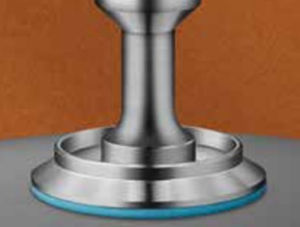Rheology is the study of flow and deformation of materials under the influence of an external force or stress. The combination of stress, strain and shear behavior forms the basis of rheology, the science of the deformation of materials. Rheology measurements are used to ensure successful material processing, optimize product performance, gain insights into complex microstructures and develop novel materials.
Rheometers are high-precision instruments that measure flow and deformation by applying a force to a sample and measuring the resulting stress or strain, allowing for measurement of viscosity and modulus. With a rheometer, viscosity measurements extend far beyond the limits of a traditional viscometer, characterizing non-Newtonian behaviors like shear thinning, thixotropy, and yield stress of complex fluids (emulsions, suspensions, paints, inks, coatings, slurries). Oscillatory rheology measures viscoelasticity (Storage Modulus, Loss Modulus, Tan Delta) of materials ranging from low-viscosity fluids to stiff solids in DMA mode (Dynamic Mechanical Analysis).
The TA Instruments | Waters Discovery Hybrid Rheometer is a future-proof R&D instrument, thanks to its extensive portfolio of accessories. Discovery HR’s geometries, environmental systems and specialized accessories are easily interchanged and automatically identified using SmartSwapTM technology. The DHR’s accessible versatility makes it the ideal instrument for labs with multiple users, diverse samples, or rapidly-changing testing needs.







